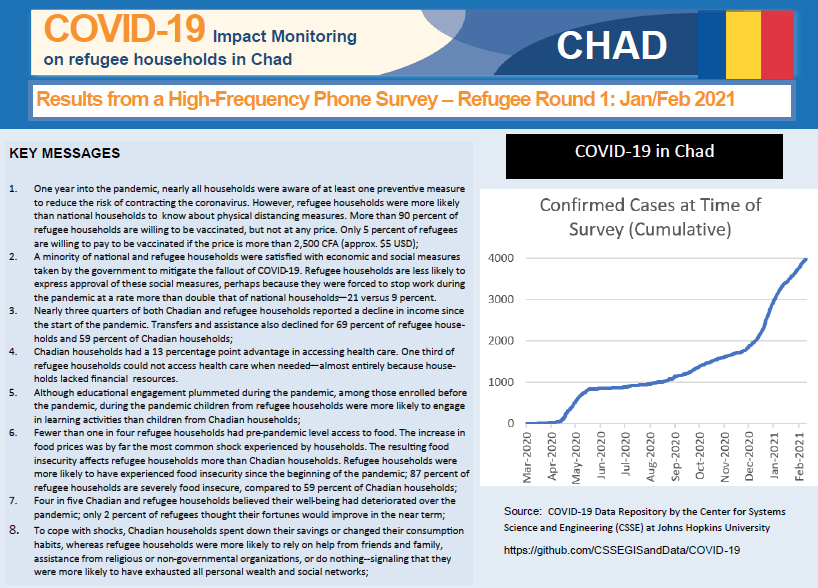COVID-19 Impact Monitoring on refugee households in Chad | Brief No. 1
This brief presents results from the first round of a High-Frequency Phone Survey on socioeconomic well-being to target both refugees and the national population in Chad during the pandemic, in January – February 2021.
The world continues to struggle with the health and socioeconomic effects of the COVID-19 pandemic. In this unprecedented crisis, host governments, other States and stakeholders have a shared responsibility not only to their own citizens but also to refugees, the majority of whom are settled in African countries. Their high level of vulnerability and the particular constraints they face in comparison to the rest of the population, places refugees’ welfare at greater risk.
Chad is among the largest refugee-hosting countries. According to the United Nations High Commissioner for Refugee (UNHCR), the number of refugees and asylum seekers represents more than 3 percent of the country’s population. Like in other parts of the world, refugees may be particularly at risk during the coronavirus pandemic because they often have limited access to water, sanitation and health facilities. High population density in refugee camps or informal settlements makes it difficult to apply social distancing measures and creates an environment conducive to rapid spread of the disease.



